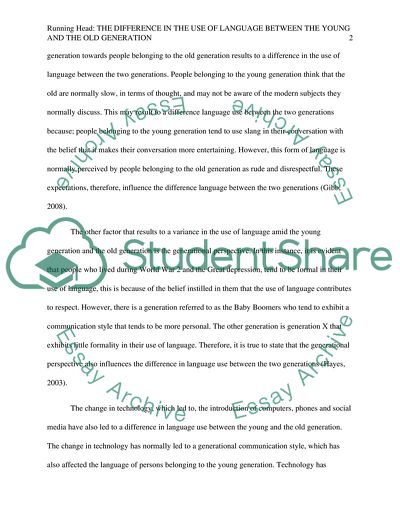Cite this document
(“The Difference in the Use of Language between the Young and the Old Research Proposal - 1”, n.d.)
Retrieved de https://studentshare.org/english/1618155-the-differences-in-the-use-of-language-between-old-and-young-generation
Retrieved de https://studentshare.org/english/1618155-the-differences-in-the-use-of-language-between-old-and-young-generation
(The Difference in the Use of Language Between the Young and the Old Research Proposal - 1)
https://studentshare.org/english/1618155-the-differences-in-the-use-of-language-between-old-and-young-generation.
https://studentshare.org/english/1618155-the-differences-in-the-use-of-language-between-old-and-young-generation.
“The Difference in the Use of Language Between the Young and the Old Research Proposal - 1”, n.d. https://studentshare.org/english/1618155-the-differences-in-the-use-of-language-between-old-and-young-generation.


